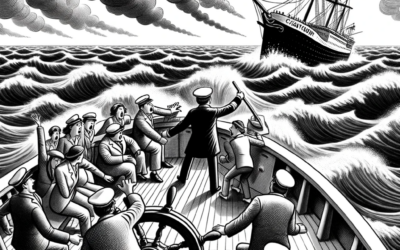The Purposeful Life
“A virtue is a habit or quality that allows the bearer to succeed at his, her, or its purpose. The virtue of a knife, for example, is sharpness; among the virtues of a racehorse is speed. Thus to identify the virtues for human beings, one must have an account of what the human purpose is.”–Aristotle
The purpose of a knife is to cut. The purpose of a racehorse is to run. The purpose of a human, according to Aristotle, is to pursue happiness. By “happiness,” he meant not just joy, but wealth, health, friendship, and knowledge. Of the virtues that allow us to achieve happiness, Aristotle valued reason most.
When he wrote the Declaration of Independence, Thomas Jefferson was influenced by Aristotle, but also by Enlightenment figures like Locke, Rousseau, and Kant, who saw that only the elite could attain Aristotle’s highest purpose. The Founders understood we must not only aim for our own happiness, but support others to pursue theirs.
As leaders, we must not just focus on ourselves, we must look at the greater good of our communities. We must exercise reason for ourselves and others. We must lead purposeful lives.




